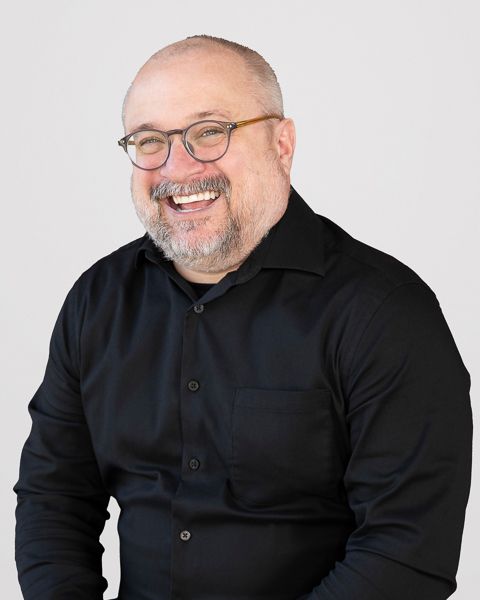
Compensation
The current healthcare landscape is creating significant challenges for clinicians in all medical specialties, but physicians and advanced practice providers (APPs) in Oncology have some added strains to contend with.
Over the last several decades, advances in technology and early detection have helped slow the overall cancer death rate in the United States. Still, the incidence of common cancers is increasing, and cancer patients are getting younger, escalating the already widespread shortage of physicians. Estimates show we could see a shortage of 10,000 Hematologists and Oncologists by 2036.
On the flip side, more and more medical students are expressing interest in a career in Oncology, which might just turn the tables on this shortage and ensure the growing number of cancer patients can receive the care they need over the coming years.
With the uncertainty surrounding the ever-changing Oncology field, clinicians can set themselves up for long-term success by finding the right job opportunity that fits their goals, requirements and lifestyle.
That’s where Provider Solutions & Development (PS&D) can help.
PS&D supports physicians and APPs across medical specialties at every stage of their careers. Through partnerships with leading cancer programs like the Providence Cancer Institute, Swedish Cancer Institute and the Joe Arrington Cancer Center, PS&D helps Oncologists find roles where they can truly thrive.
“Cancer touches everyone, and there is always going to be a need for quality providers. It gives me a sense of purpose to make sure that patients who need care the most have access to it.”
~ Matt Faber, Senior Physician Recruiter, PS&D
So, how can Oncologists and Hematologists navigate the sometimes daunting job search process? It all comes down to proactive preparation, strong interviews and effective offer negotiation.
In 2024, over 15,000 Oncologist jobs were posted by over a thousand different employers, which is a large pool of potential roles for Oncologists or Hematologists seeking their next opportunity. Because of the wide range of options, it’s critical for clinicians to narrow their focus from the beginning — quality over quantity is always the recommended strategy in the early stages of a job search.
(For more information on how to compare job offers and make the best choice for you, check out our Journal.)
Before even looking at a job posting or reaching out to connections, clinicians must start by identifying their job requirements. What does the ideal job look like for you? What sorts of job characteristics are “must-haves” or “deal-breakers”?
Here are some questions to ask yourself to get started in documenting your job requirements:
As you’re identifying requirements, it’s also a good time to think about short- and long-term career goals:
Consider what the next year, five years, 10 years and beyond look like for you in an ideal world and hold these goals close as you evaluate roles to ensure you’re setting yourself up for success to accomplish them.
After you’ve narrowed down your needs and goals, there’s one more key step in the preparation process that can make or break your job search: your CV and cover letter. These two documents are your first introduction to a recruiter or hiring manager. You get one shot at a first impression, so it’s important to make it count.
There are four essential components of every clinician’s CV: board certification, current and previous practice background, state licensure and training. These four things make up the majority of the content on your resume, but the rest of your CV is where you set yourself apart from other candidates and showcase your unique experience.
“Make sure that you have your work experience first and foremost,” Matt says. “If you have done specific rotations, make sure to document them. It helps to establish a narrative. Make sure to list what your specialties are and what procedures you do.”
Your cover letter should put your professional experience in context. This is where you can talk about a residency or fellowship program that gave you experience in a specific procedure or share more about any advanced certifications you have that strengthen your fit.
While it’s important to tailor your cover letter (and sometimes even your CV) to the specific role you’re applying for, having a baseline template of both documents can make it easier to customize when you find a role you’re ready to apply to.
Once you’re feeling adequately prepared, it’s time to put that preparation to good use and start finding and applying to roles that fit your goals and requirements. But, with hundreds of jobs available at any given time, this can feel overwhelming.
Job boards are a typical starting point. PS&D is actively recruiting for a number of Oncology and Hematology roles on our job board. There are also specialty-specific job boards, like American Society of Clinical Oncology (ASCO), and broader job boards, like the New England Journal of Medicine. LinkedIn, Indeed and others have a large quantity of jobs, but their search functionality can sometimes make it difficult to narrow a search for your sub-specialty.
Alternatively, if there’s a specific health system or hospital in the city you’d really like to work for, you can always apply directly on the organization’s website or contact their recruiting team that way. This is a particularly effective approach for smaller, rural practices that may not post on larger job boards or be looking for someone with a particular local tie.
Lastly, the job search is a great time to leverage your network. Maybe you know someone who works at the organization that’s at the top of your list, or one of your old colleagues just became a medical director in your ideal city.

~ Matt Faber, Senior Physician Recruiter, PS&D
Once you hear back from an organization about your application, it’s time to focus on perhaps the most important part of the job search process: interviewing.
For Oncology and Hematology, the interview process looks a little different depending on the health system, hospital or organization. Some require just a couple of interviews while others may conduct more. Some may have an external recruiter (like the team at PS&D) handling their screenings, while others are a smaller operation with not as much recruiting support.
Regardless of the specific process, there are some key things for clinicians to keep in mind while interviewing for Oncology or Hematology roles.
Your interview will only be as good as the preparation you put in before stepping into that office or conference room. Make sure you give yourself adequate time to research, practice and mentally prepare for each interview in the process.
“Take an interest in the health system you are applying for,” Matt says. “Do any research you can do online to find out what their stated mission is and what type of support you will have when you start your new position.”
Next, practice your answers to common interview questions to ensure you’re not caught off-guard in an interview and can articulate not only your experience but your value to the organization.
While every hospital and health system will ask slightly different questions depending on the role and what matters to them, there are still questions that come up frequently in physician and APP interviews:
Following the formula of present, past and future in your answer is usually a good place to start.
Potential employers want to hire people who are invested and who want to stick around, so share why this specific town, city or community matters to you.
This is where you add detail to your resume, including any technical skills, how you interact with care teams and your strengths in caring for patients.
Organizations want Oncologists who are not only skilled but are also empathetic and passionate. They want clinicians who can work effectively with a team.
Special skills or procedural experience will set you apart from other candidates, so know how to speak to things that make you unique.
Cancer care is always growing and changing, and managers want candidates who might already be familiar with the technology they’re using in the hospital, such as robotics if you’re in a surgical role.
Above all, hiring teams are looking for clinicians who can compartmentalize the day-to-day of a tough specialty and approach patient care with empathy and decency. They want to know that you’re qualified for the role based on prior experience and that your future aspirations match their own.
Every good interview is as much about the candidate evaluating the organization as it is the other way around, so asking good questions throughout the interview is an essential step in this process.
“Candidates should ask about the future of the practice,” Matt says. “Will it grow? Also, find out if there is mentorship available. As you start your career it is imperative that you have people to help you along your way.”
The more specific your questions, the better you’ll understand the role, the culture and the growth potential. Thoughtful questions help ensure the position puts you on the path to reaching your goals while meeting all your requirements. Ask about things like the flexibility of the role, how they protect clinicians from burnout, or what research the hospital is contributing to.
Finally, save the salary questions for a later interview.
“As you interview, remember that there will always be time to discuss salary and benefits,” Matt says. “It is definitely okay to ask for clarity, but organizations are looking for people who think about patient care, and often, the providers interviewing you will not be involved in the compensation process.”
(For some additional questions you might add to your interview list, check out our Journal on interviewing.)
Once interviews are completed and the offer letter comes through, it’s time for the final step in the job search process: negotiating a contract that is beneficial to both you and the organization.
Here are some key tips to take with you to the negotiation table:
Above all, don’t lose sight of those goals and requirements you documented at the beginning of the process. Know that it’s okay to flex on those things if that gut feeling is telling you this is the right fit for you.
Finding the right opportunity can be daunting for any physician or APP. Oncology is a particularly challenging specialty where accepting a role that isn’t the best fit can make the day-to-day experience that much harder.
With thorough preparation, strong interviews and effective offer negotiation as your north stars, Oncologists and Hematologists can take the next step (and every step after) in their career with confidence.
PS&D is passionate about matching clinicians with organizations that fit all their goals and lifestyle preferences. We are more than just recruiters. We are here to guide you through every step of your career with personalized support and the same level of care you give your patients each and every day.
Ready to take the next step in your Oncology career? View our open positions.

Compensation

Job Transition